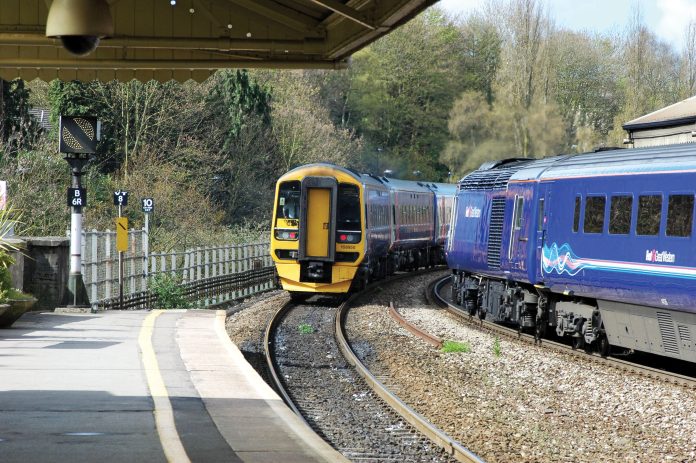Jared Wood, RMT National Executive committee (personal capacity)
The government and rail industry bosses have been shaken by the tremendous ballot results returned by the Rail, Maritime and Transport Workers’ union (RMT). It is no exaggeration to describe these results as historic. They were achieved in spite of all the obstacles placed in front of the RMT by the anti-union laws, government propaganda, and a dirty management campaign that involved appealing to members not to take part in the ballot in order to fail the turnout thresholds.
The massive ‘yes’ votes returned by members working for Network Rail and thirteen Train Operating Companies (TOC) show the massive anger of rail workers and their determination to defeat the government and bosses’ plans to decimate the industry.
The government and bosses are using Covid as a pretence to introduce flexible working and job cuts. They have formed a group called the Rail Industry Recovery Group (RIRG). This group has been discussing the bosses’ agenda, including massive job cuts and a reorganisation based on flexible working. RMT insisted that pay and a no compulsory redundancy agreement be included in talks. They were included, but the employers have offered nothing.
Having endured two years of pay freeze, and with the threat of mass job cuts and the destruction of terms and conditions, members have returned massive ‘yes’ votes. In Network Rail, 90% of members voted to strike on a 70% turnout. Similar votes were returned on several TOCs. Every one of the TOCs achieved a legal strike mandate too, apart from GTR (Govia Thameslink) where RMT fell just five votes short of the 40% threshold. RMT is to reballot these members.
The RMT national executive will now consider reports of any responses by the employers before deciding on dates for strike action. It is essential that members’ demands on pay, jobs and conditions are addressed.
The movement into strike action of these members, numbering over 40,000, opens up the opportunity to coordinate action with strikes already being taken by RMT members on London Underground.
The RMT National Executive will be looking at further strike dates on both London Underground and on the national rail network. The possibility of a national rail strike which included the London Underground is now absolutely real.
Such a strike would demonstrate the importance of our rail network. The Tories are crying that rail is too important to allow workers to strike. They are threatening further legal restrictions on the right to strike including legally enforceable minimum service levels. RMT General Secretary Mick Lynch has quite rightly threatened a ferocious response to any such attempt.
Of course, the rail network is of huge strategic importance, and that is why it should not be left to be exploited by spivs dishing out dividends to billionaire owners. We need a renationalised and publicly owned rail system run as a public service.
But as the experience of Scotrail shows, nationalisation alone is not enough. RMT members are balloting to strike after a derisory 2.2% pay offer, despite the franchise having been taken over by a Scottish government-owned body from April. We also need to fight for full funding and democratic workers’ control.
Run democratically, and not in the interest of profit, any spare capacity from an easing of passenger demand following the pandemic can be used to provide less crowded, improved passenger services, and to get freight off the roads and onto electric trains.
RMT will face an onslaught from the government, which wants to teach the trade union movement a lesson and roll out post-Covid austerity as their solution to a cost-of-living and broader economic crisis. The whole movement must support the RMT in this fight. Pay cuts, job losses and flexible working must be defeated in the rail industry and beyond.
London Underground workers strike for pensions, jobs and working agreements
RMT members on the Tube took rock-solid strike action on 1 and 3 March after London Underground refused to abandon pension attacks, job cuts and flexible working proposals on London Underground stations.
Further strikes are inevitable unless assurances are given that pension attacks identified in the recent misnamed ‘Independent report’ are shelved. The report, outrageously compiled by the former TUC General Secretary Brendan Barber, presented management with a list of potential attacks on pensions that could reduce the value of future accruals by around 30%.
In addition, RMT is demanding that no jobs are cut and that agreements, covering rostering and other terms and conditions, are not changed unless agreed with the union.
Management’s attacks on Tube workers are being driven by demands from the Labour mayor, Sadiq Khan, and the Tory government for savings of £500 million a year. The mayor has agreed to make Transport for London self-financing, an impossible dream that has ended up with him adopting a policy that he has called “managed decline”.
RMT members on the Tube are not prepared to see their network decline year on year, and will fight for a proper funding arrangement that protects the service provided, and guarantees their pensions, jobs and conditions.
City of London bonuses are back at record levels. There is no excuse to starve London’s transport network of funds.
Every trade unionist in London should be demanding that the government reverses its policy of self-funding for public transport and an end to the disastrous policy of managed decline. Passengers and Tube workers deserve better.








